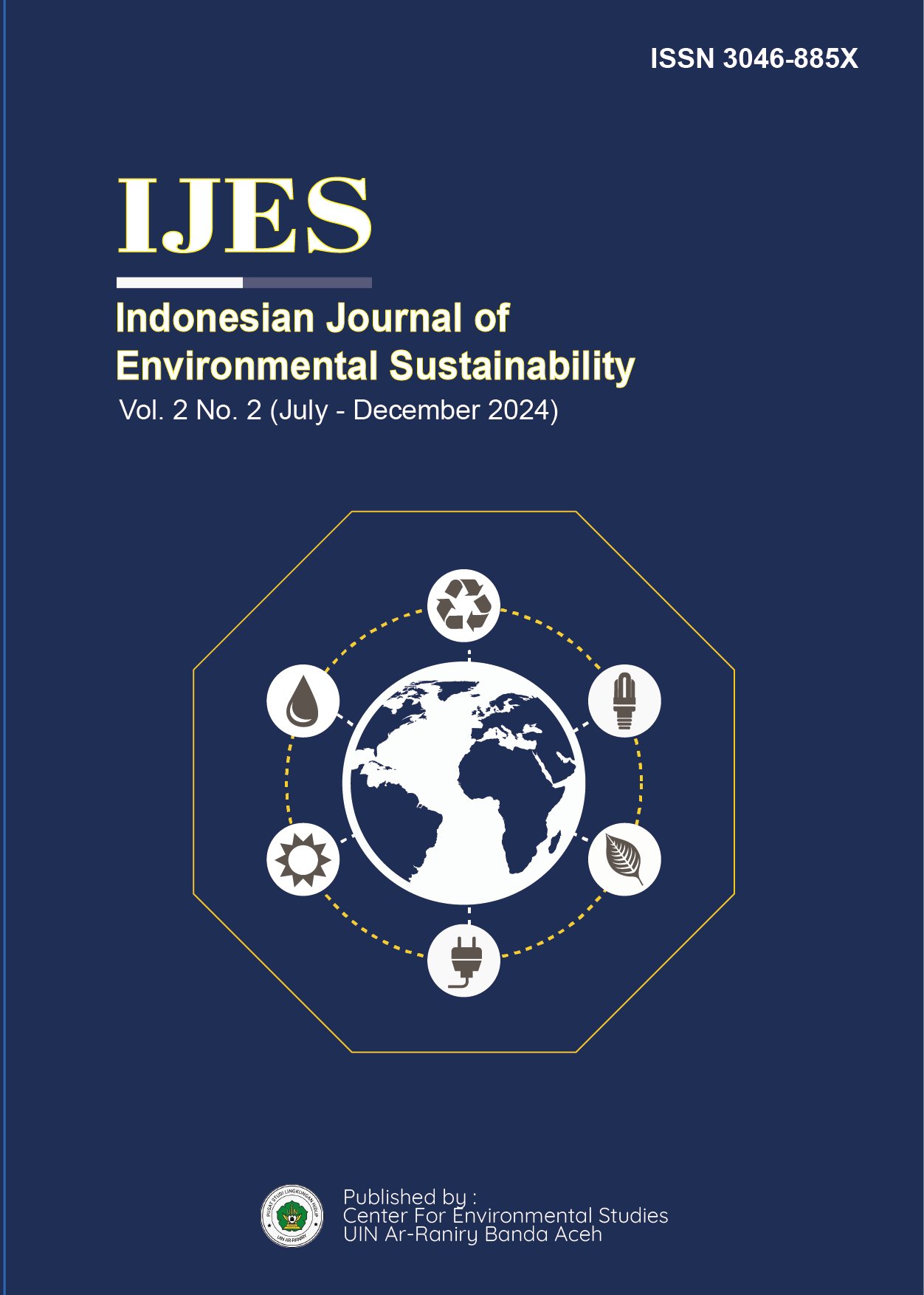THE INFLUENCE OF SOCIO-ECONOMIC FACTORS ON COMMUNITY PARTICIPATION IN THE IMPLEMENTATION OF THE REDUCE-REUSE-RECYCLE PRINCIPLE IN LHOKNGA, ACEH BESAR REGENCY, ACEH PROVINCE
DOI:
https://doi.org/10.22373/ijes.v2i2.6076Abstract
Reduce, Reuse, and Recycle (3R) on waste management is one of the key strategies implemented in Indonesian to reduce the negative impact of waste on the environment. This study aims to explore the influence of socio-economic factors on the level of community participation of 3R in Lhoknga District, Aceh Province. The socio-economic factors analyzed include gender, age, educational attainment, income, occupation, housing status, and household size. This study used a descriptive quantitative survey approach involving 30 randomly selected respondents. Data analysis was conducted using Structural Equation Modeling-Partial Least Square (SEM-PLS) to identify the relationship between socio-economic variables and various forms of community participation, including cognitive participation, physical participation, material contributions, skills, and waste management. The analysis results show that socio-economic characteristics do not have a significant influence on the various forms of participation in waste management. The P Values for different types of participation are above 0.05, such as cognitive participation (0.342), physical participation (0.312), material contributions (0.390), skills (0.302), and general waste management participation (0.342). This indicates that there is no statistically significant relationship between socio-economic factors and the level of participation in waste management in Lhoknga. Participation in 3R activities is more influenced by individual awareness rather than socio-economic factors.
















